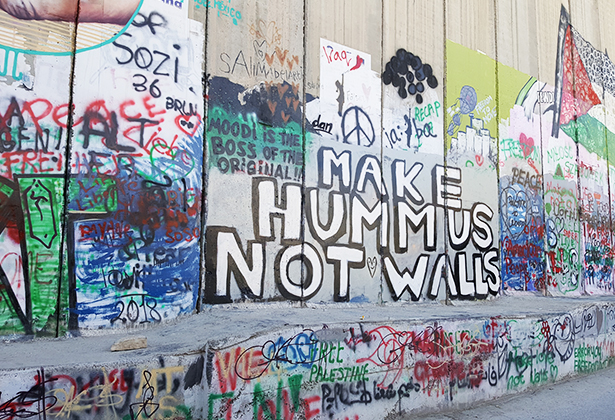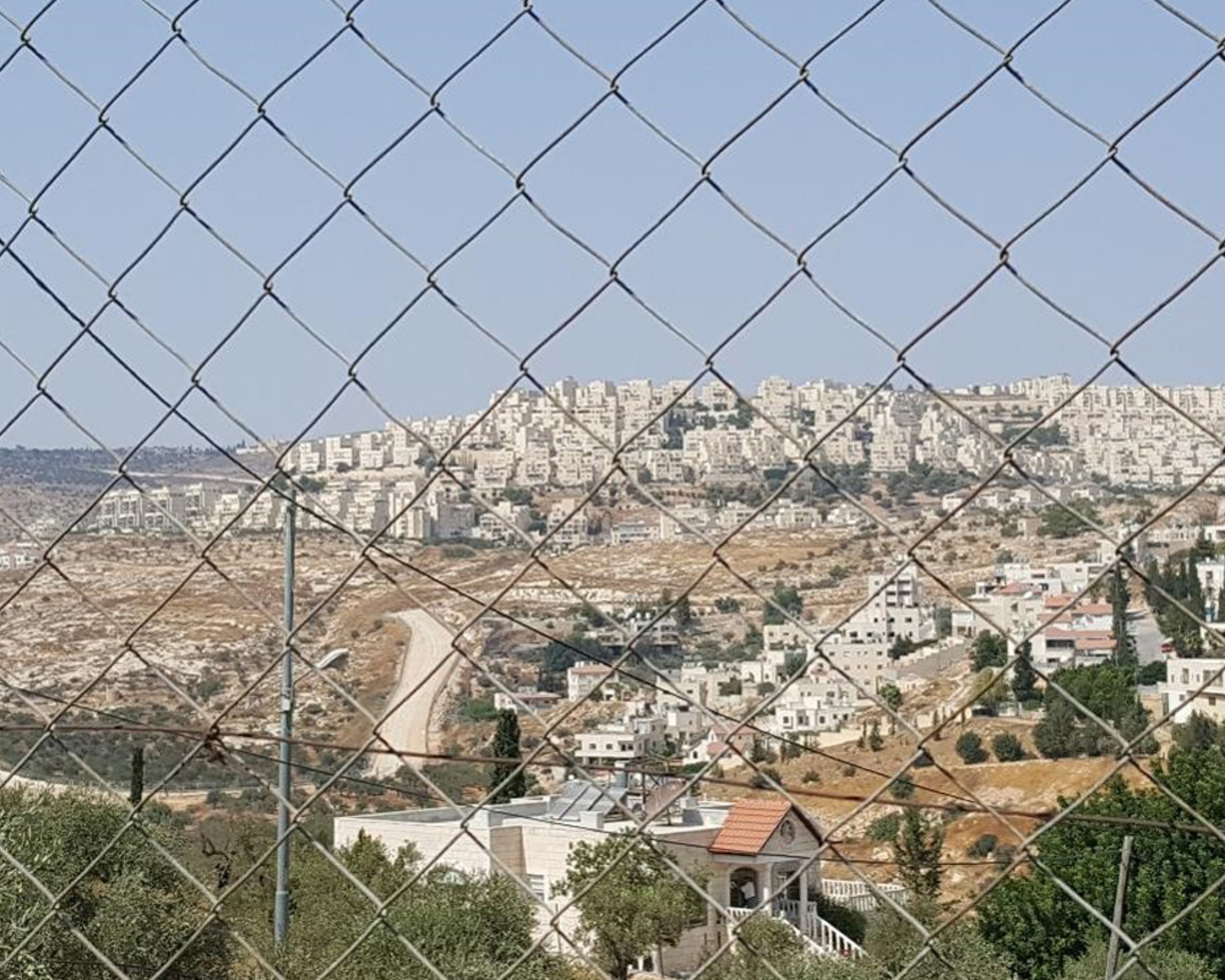
Israel and Palestine
The latest report on our work relating to Israel and Palestine is contained in the 2020 GA Book of Reports, section 3.12.
This report shows the continuing response to the substantive Resolution 37 which was taken by GA 2016 and can be referenced here.
Two further outcomes from Resolution 37 are the Mission Committee appeal to churches to lobby their MPs about annexation and the ecumenical letter signed by GA Moderator, Derek Estill on the same subject.
Images credit: © Philip Brooks
Walking the Tightrope
A few years ago, the URC undertook a joint project with FODIP (The Forum for the Discussion of Israel and Palestine) to produce a film, preparing anyone considering a pilgrimage to the region.
The film is a practical and easily accessible resource aimed at encouraging people to undertake something much more than a biblical ‘Disney’ tour, engaging with real people and their present day circumstances, and can be found here.
The Trump ‘peace plan’
In the aftermath of the recent announcement of President Trump’s ‘peace plan’, the Ecumenical Accompaniment Programme in Palestine and Israel (EAPPI) have responded by issuing a statement. During the recent United Reformed Church educational visit to the region, participants saw at first hand the increasing encroachment of the illegal Israeli settlements in Palestine and the disruption these cause to Palestinian people. In his Advent message, General Assembly Moderator, Derek Estill reflected on the impact of the settlements, which are illegal under international law.
EAPPI is an international programme coordinated by the World Council of Churches. It brings people from around the world to the West Bank to serve for three months as human rights monitors - ecumenical accompaniers (EA’s). EAPPI was founded in response to a call from the churches in Jerusalem. Over the last 20 years, more than 1,500 international volunteers from 22 countries have served as EAs. In the UK and Ireland this programme is coordinated by British Quakers on behalf of 16 partner churches.
The United Reformed Church is proud to be one of these partners, offering financial support and sending EA volunteers.
The Rt Rev Declan Lang, Lead Bishop for the Catholic Bishops’ Conference on International Affairs and the Rt Revd Christopher Chessun, the Church of England Lead Bishop for International Affairs have also issued a joint statement in response to the American proposals.
Educational Visit to Israel & Palestine 18-28 September 2019
This initiative responded to 2016 General Assembly resolution (see above): ‘to enable synods, local churches and individuals to become more aware and to respond with informed prayer, grace and solidarity... around the issues of the Israel/Palestine situation’.
In his role as Moderator to General Assembly, Derek Estill spearheaded the visit. 22 people took part, drawing from: URC Youth; Communications; Commitment for Life; Interfaith Relations; Global and Intercultural Ministries. There was at least one representative from each of the URC’s 13 synods. For most of the applicants, this was their first visit to the region. Each participant has given a commitment to share the experience and learning from the visit widely within their synod on their return.
This was a guided, educational visit, exploring parts of Israel, the occupied West Bank, annexed East Jerusalem and the Golan Heights. The aim was to learn about their peoples, religions, politics and cultures. There was a particular focus on meeting with Palestinian Christians, in order to appreciate the immense challenges faced by the indigenous churches and their members. The visit explored some of the principal historical sites relating to the Abrahamic faiths. There were periods of reflection and bible study throughout, and especially by the Sea of Galilee towards the end of the visit.
Read an article by Diana Paulding, one of the United Reformed Church Youth representatives, about her experiences of the visit.
There will be more reports to follow. In the meantime here are reflections from a two of the participants.
Yad Vashem
The members of the group were deeply moved by their visit to Yad Vashem, the World Holocaust Remembrance Centre in Jerusalem.
The Revd Philip Brooks, Secretary for Ecumencial and Interfaith Relations, who took part in the visit, offers a reflection here on the 75th anniversary of the liberation of Auschwitz-Birkenau, influenced by his visit to Yad Vashem.
See photographs of the group reflecting on their visit here.
Exhibition of Hope for Israel and Palestine
At General Assembly in 2018, we were delighted to host the World Council of Churches’ 12 Faces of Hope exhibition. Two years previously, Assembly resolved to increase our collective awareness of the situation in Israel and Palestine, focusing on: dialogue and action; peace building; justice and security for all.
The exhibition is just one response to this call. It represents a strong and touching expression of hope for justice and peace through the personal stories of 12 Palestinians and Israelis who all are victims of the occupation.
Since General Assembly, the pictures have been exhibited in several churches as well as the Churches Together in Britain and Ireland AGM. It is due to be shown at Wessex October Synod.
If you are interested in hosting this exhibition in your church or at a specific meeting, do please contact Carole Sired. The pictures are A1 in size, mounted in 12 click frames and easily transportable. The exhibition is available free of charge apart from minimal costs for its transportation.

Invest in Peace
The URC is proud to support the Israeli-Palestinian ‘Invest in Peace’ initiative which is organised by the Board of Deputies of British Jews and Churches Together in Britain and Ireland (CTBI). Peter Colwell, Deputy General Secretary of CTBI, reflects here on four Invest in Peace Events with Palestinian Yasser Khaldi and Israeli Meron Guttel.
Linda Rayner, URC Fresh Expressions Coordinator, attended a Parents Circle – Families Forum (PCFF) peace event in Manchester on 12 November 2018 and reports on it here.





